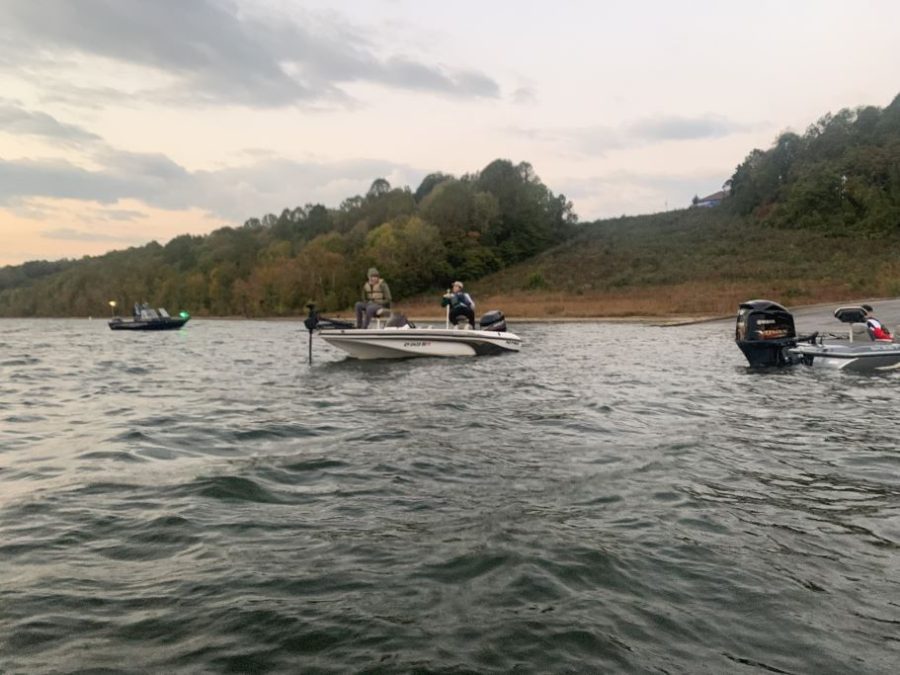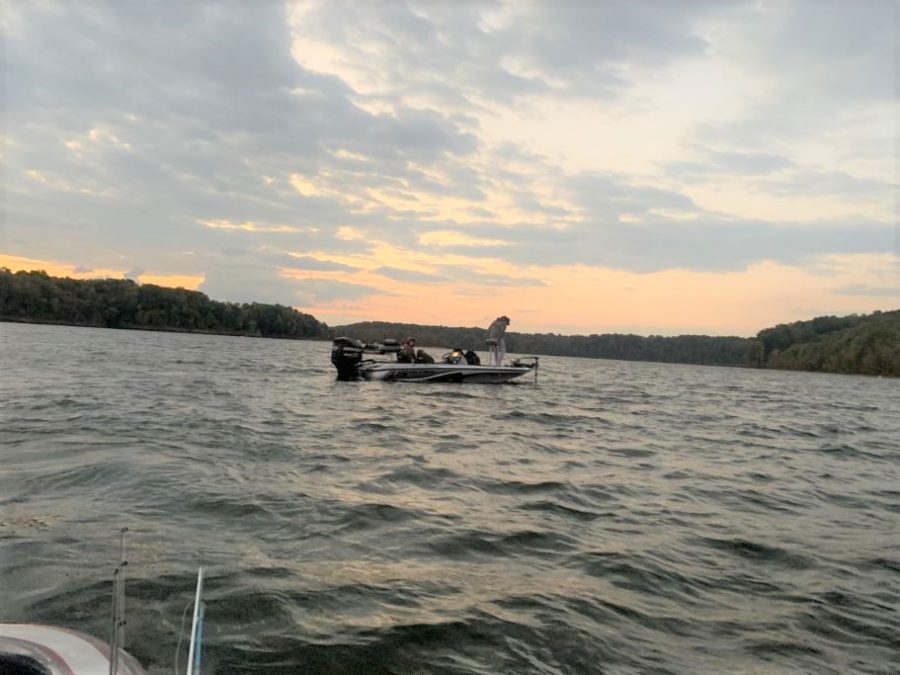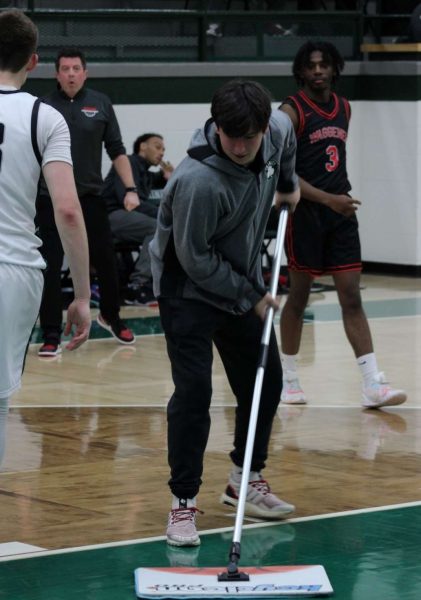Bass Fishing Rocks Depend on Teamwork, Preparation to Catch the Big Ones
The Bass Fishing Rocks compete in the fall and spring.
January 23, 2022
Unlike most every other sport, the environment in which the Rocks Bass Fishing Team athletes compete can change dramatically from one competition to another.
Former head coach and current moderator Mr. Mike Chancellor said to always “be aware of the conditions of the lake.” Hot water temperatures create a lack of oxygen, which moves fish to cooler water where they can survive and feed. Cold water temperatures slow the metabolism of the fish, which in turn moves the fish to find warmer water when it is feeding time. Anglers should watch for these critical changes during these times of the year.
Chancellor said another crucial consideration while competing is “the level and water clarity of the lake. Is it above summer pool, muddy, stained, or clear?” All these factors can affect the line being used and where the boat should be moved.
The Rocks are led by head coach Kevin Hunt. Kentucky became the second state in the country to offer bass fishing as a varsity sport. The Kentucky High School Athletic Association sanctioned the sport in 2012-13.
Team member senior Harrison Hunt pointed to another unique aspect of fishing: “It has no defense,” he said. This causes the angler to focus on helping the team and himself. Through involvement with the fishing team, bonds are created between the anglers and coaches, as well with parents who volunteer, viewers who simply enjoy the sport, or people from other schools.
The Rocks fish on beautiful rivers and lakes during the season, including Green River and Barren River. Some tournaments and the state finals might take competitors to Lake Cumberland or Kentucky Lake.
Chancellor described the unique team aspect of the competition that involves two teammates working together: “You are on a 20-foot boat, and you’re there for eight hours.”
During practice the 20 to 25 bass fishing team members work to perfect their casting and discuss strategy. The first way the fishing team prepares for competition is by having a map to find out details about the lake or river.
One thing that may go unnoticed about fishing is the cost. Chancellor said, “It’s the number-one income sport in the world.”
Harrison Hunt said, “A normal set of baits will cost several hundred dollars. Also, your rod and reel sets will cost several hundred dollars each. You’ll probably have around five rods so you’re pushing over a thousand dollars if you’re going all in on it.”
Through involvement with the fishing team, bonds are created between the anglers and coaches, as well with parents who volunteer, viewers who simply enjoy the sport, or people from other schools.











